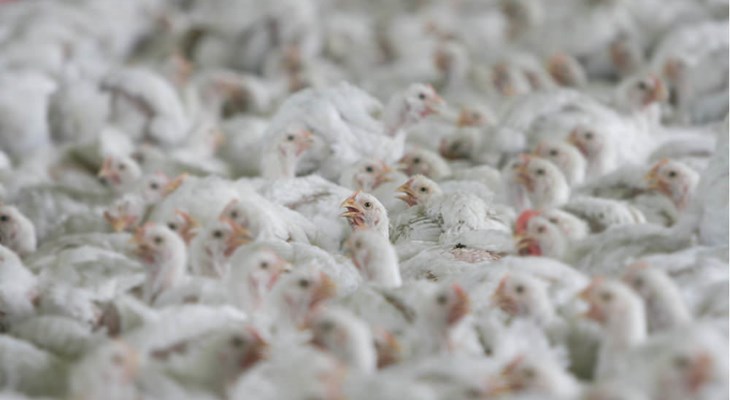
Today (5th November), as world leaders continue to discuss climate change at COP26 in Glasgow, we’ve released a new report showing that to avert a climate catastrophe, global meat and dairy consumption must be dramatically reduced.
Urgent action needed before it’s too late
Fossil fuels, energy and transport tend to dominate climate discussions, with governments largely ignoring livestock’s contribution to the climate crisis.
‘Breaking the Taboo: Why Diets Must Change to Tackle Climate Emergency’, sets out the clear scientific case that without an urgent action, we will be unable to meet the 2015 Paris Agreement on climate change.
The report reveals alarming statistics about the true cost of meat and dairy production, including:
- The livestock sector is responsible for 14.5% of global greenhouse gas (GHG) emissions
- The food system is responsible for one third of all GHG emissions - 75% of agriculture’s emissions are from livestock
- To meet the Paris Agreement targets, all sectors need to reduce their emissions. However, if global meat and dairy consumption continues at the same rate, emissions from food and agriculture will rise significantly, and meeting the Paris Agreement targets will be very difficult
- Changes to our diets could contribute up to a fifth of the mitigation needed to meet the Paris Agreement targets.
A major driver of the climate crisis
Author of the report and our Chief Policy Adviser, Peter Stevenson, said: “The central role that food and agriculture plays in the climate crisis has been virtually overlooked by world leaders.
“Today, we’re breaking the taboo and saying what has to be said through our new report – that livestock production is a major driver of the climate crisis. Without an urgent and dramatic global reduction in meat and dairy consumption we will be unable to meet the Paris Agreement targets needed to avert a climate catastrophe. Are we really prepared to risk destroying the planet simply because we cannot curb our excessive consumption of meat and dairy?
“World leaders must commit to taking urgent and definitive action to reverse this calamitous path, before it’s too late.”
Compassion at COP26
Earlier this week (1st November), a statement signed by over 100 NGOs and prominent figures – calling on national governments to address the impact of food and animal agriculture to avert a climate catastrophe – was published in The Times and The National. Many of our wonderful High Profile Supporters added their names to the statement, including actor Joanna Lumley, Dragon’s Den investor Deborah Meaden and vet Marc Abraham.
We also continue to speak with delegates from around the world at COP26 about the effects of animal agriculture on climate change. Follow us on Twitter and Instagram to see what we are getting up to throughout the conference.
Food Businesses should act now
The decisions food businesses make today are crucial in addressing the enormous challenge of feeding a growing population within our planetary boundaries.
Our Rethinking Food programme aims to work in collaboration with leading food companies on the development of a resilient food system. One that relies less on industrial agriculture and animal products - to one that is more plant-forward, inclusive and regenerative - restoring nature and biodiversity and meeting the needs of people and animals, while protecting the future of our planet.